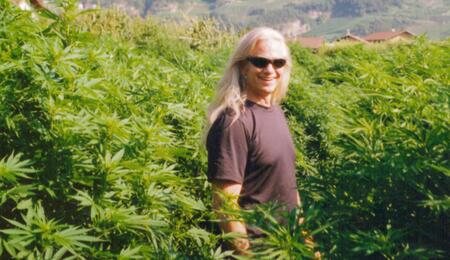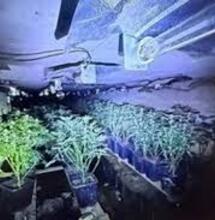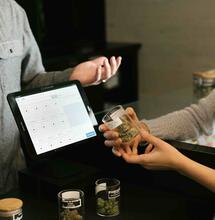Richard Rose

During a summer evening SSUK had the pleasure of meeting Richard Rose, an American citizen with a long career in cannabis activism. The following is the report of the pleasant chat we shared on the positives and negatives aspects of cannabis regulation in some American states.
Cannabis pioneer from California
SSUK: Richard, what made you nutty for cannabis? How did you develop this deep interest in the applications of this specific plant?
I've used it as medicine starting in 1971, and it kept me alive. In 1972 I campaigned to legalize, California's first vote on it. Then after being an award-winning food developer and marketer using soya to make foods since 1980, in 1994 I pivoted to using hempseed instead. I ended up investing $2.5 million over the next 8 years to create the modern hemp food industry in the US and Canada. Today, that is hemp's first billion dollar industry. Today I just write and produce The Richard Rose Report and consult on hemp and marketing.
Can you report us what is going on on the other side of the ocean? In US several states did regulize already cannabis, how this decision impacted on the American society?
Forty-six of the 50 states have some form of Cannabis reform, however, it is still not actually legal yet in any of them. Like psychedelics, marijuana is still Schedule 1 federally and in each state (the most-restrictive category, "no medical value" and "high potential for abuse") so the market is not free but is highly regulated. Many are still arrested every year, 5.000 in Colorado and 6.000 in California. Marijuana taxes are used to raid the "competition" including patient grows. Even in Denver Colorado, growing just one plant outside in a locked and fenced yard, one can lose their house to asset forfeiture. It isn't legal, yet, just "legal." Rich old white guys are making millions on what people of color still sit in prison for. Taxes are high, and the massive savings in enforcement costs are ignored, never discussed or discounted. Heavily armed SWAT teams of police serve zoning violations on homeowners, with as much as $30.000 per day fines even in California. Constitutional protections are ignored daily with impunity.
What kind of influence has cannabis legalization on economical and social level?
It has opened up the conversation in public. Stigmatized only a few years ago, there are now TV shows and movies about marijuana, and not just the "Cheech and Chong" type, but normalized ones. Even "Soccer moms" in the suburbs use it, and it seems everybody has a THC vape pen. Economically, Colorado has already gained a $1 billion from taxes. But where there's regulation, there's corruption. And the savings in enforcement costs is huge, as big as the black market was.
For British activists cannabis legalization is the goal to achieve. What kind of advice are you willing to share with them?
Try for as little regulation as possible, just allow patients and adults to grow a few plants for themselves without fear. There is no need for a highly-regulated system, as that's just to be able to create a "Walmart of Marijuana," big companies selling it retail. Even the Drug Enforcement Administration called it "the safest therapeutic substance known to man," this is not a dangerous or hazardous plant and it doesn't need to be treated as one. Regulate Like Zucchini should be the first goal.
Is legalization itself an absolute positive issue or does it hide some negative side effects?
There is definitely a strongly net positive, although due to human nature there are some negatives but not because of the plant itself. The greed factor is the downside, but that's due to the law not the plant. There's been an increase of corruption among police, politicians, and regulators because of the money involved. Because the way they "legalized," there is a greater need for lawyers, police, consultants, lobbyists, and the companies selling it don't want increased competition. That means there's never been as many aligned against true legalization as today after "legalization." And the legalization organizations have a perverse disincentive to achieve true legalization, in order to keep their jobs. The heavy regulation has corrupted many politicians and regulators. And the companies which already have a license are in no hurry to see it descheduled or truly legalized, as that will increase competition for them. Scientific research is still very difficult, companies can't use banks, taxes are higher than normal businesses, hundreds of thousands of people still go to jail for growing or possessing, nationally, arrests didn't go down, there are still ~750,000 arrested annually, mostly people of color. US still hasn't achieved real legalization, it's more like "Prohibition 2.0." https://therichardrosereport.com



